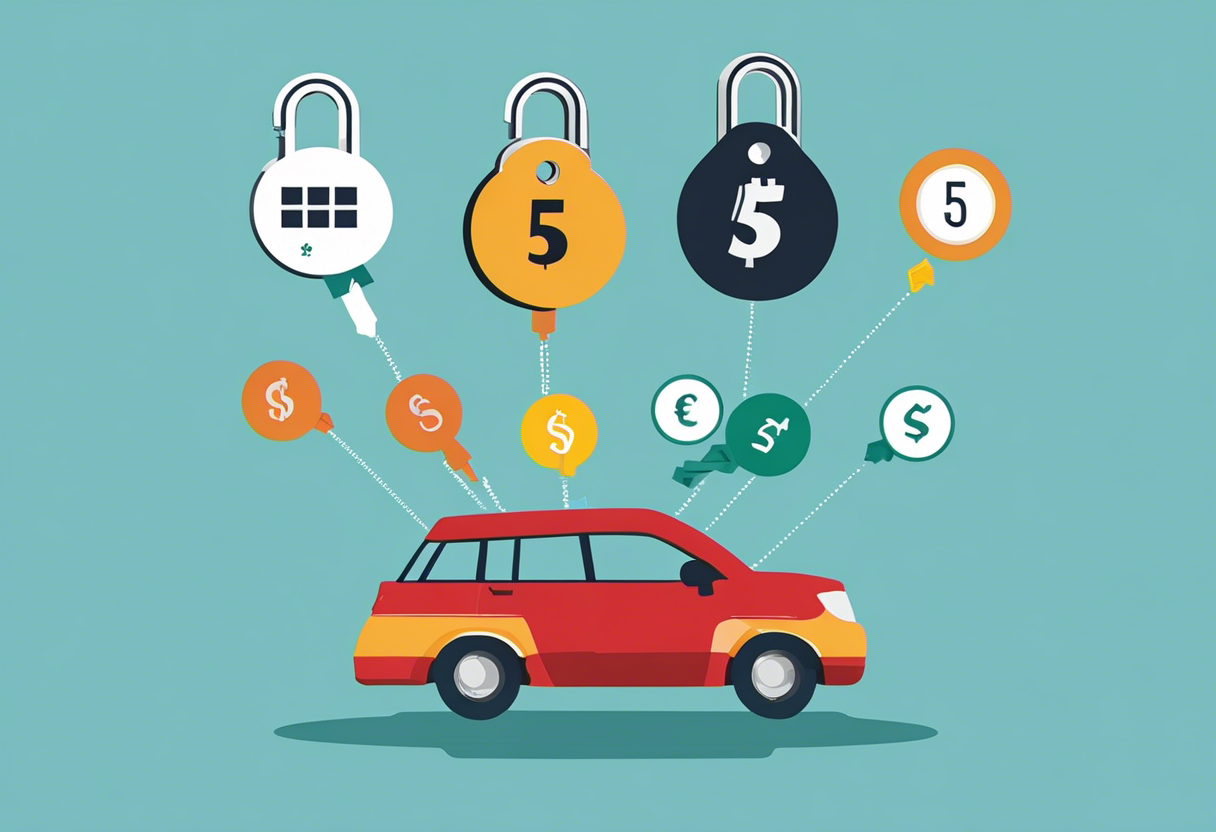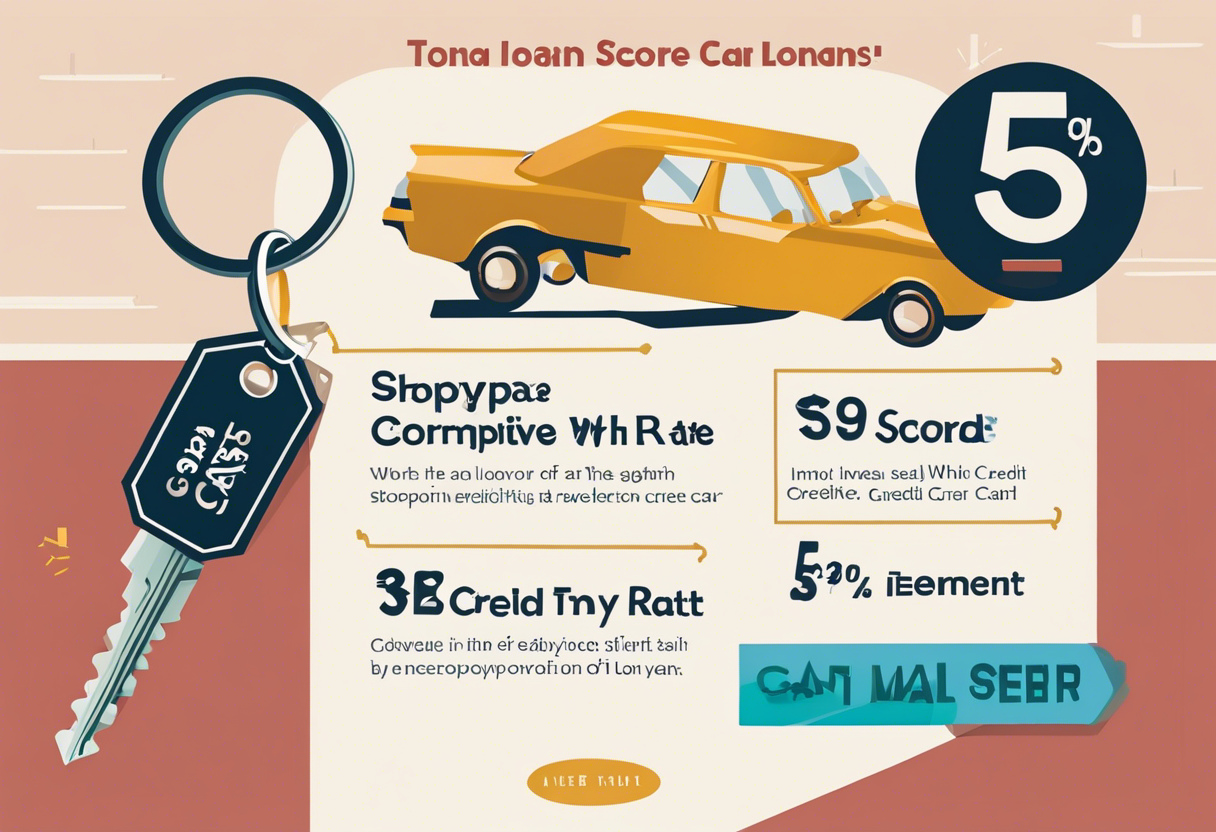Easy Car financing refers to borrowing funds to purchase a vehicle. It involves:
- Assessing various loan options
- Understanding interest rates
- Calculating monthly payments
- Determining loan terms
Typically, financial institutions, credit unions, and dealership financing services offer these loans. Potential car buyers should aim to secure loans with the lowest possible interest rates and optimal payment terms that suit their financial situation, ultimately ensuring an affordable and predictable repayment process over the loan’s lifespan.
Understanding Your Credit Score and Its Impact on Loan Eligibility
Your credit score serves as a snapshot of your financial reliability, influencing lenders’ decisions. Higher scores often lead to:
- Easier loan approvals
- Lower interest rates
- More favorable loan terms
This number reflects:
- Payment history
- Credit utilization
- Length of credit history
- New credit inquiries
- Types of credit used
Lenders use this score to assess risk. A good credit score reduces the perceived risk, enhancing your chances of securing a car loan with competitive rates. Regularly monitoring and improving your credit score is crucial for loan eligibility.
Exploring Loan Options:
Banks, Credit Unions, and Online Lenders
When considering car loan options, prospective buyers should evaluate offerings from banks, credit unions, and online lenders:
- Banks typically provide a wide range of loan products, including secured car loans, but may require a stronger credit history for the best rates.
- Credit Unions offer competitive rates to their members, often lower than banks, and are known for personalized customer service.
- Online Lenders specialize in convenient application processes and fast funding, and they cater to a broader spectrum of credit profiles.
Each lending institution has its merits, and potential borrowers should compare terms, rates, and eligibility criteria to secure a car loan that aligns with their financial situation.
The Importance of Pre-Approval for Easy Car Loan Processes
Obtaining pre-approval for an auto loan is a critical step towards a smooth car buying experience. It offers several advantages:
-
Assesses Financial Standing: Prospective buyers understand their budget, reducing the risk of selecting an unaffordable vehicle.
-
Enhances Negotiation Power: With pre-approval, buyers are akin to cash purchasers, holding better sway over price negotiations.
-
Accelerates the Buying Process: Pre-approved loans streamline the purchase, allowing for quicker dealership transactions.
-
Reduces Stress: Knowing loan terms in advance alleviates the anxiety of financing surprises.
-
Locks in Interest Rates: Pre-approval often secures a competitive interest rate, protecting against market fluctuations.
By securing a pre-approved loan, buyers position themselves for a confident and competitive car buying journey.
Comparing Interest Rates:
How to Find the Best Deals
When shopping for car loans, it’s vital to compare interest rates from multiple lenders. Reviewing rates from banks, credit unions, and online lenders can reveal the most competitive options. Buyers should consider not only the annual percentage rate (APR) but also loan terms and fees that can influence the overall cost of the loan. Pre-approval can lock in interest rates and provide leverage during dealership negotiations. It’s beneficial to monitor rate trends and time the application when rates are favorable. Good credit scores often secure lower rates, so potential borrowers should aim to improve their creditworthiness in advance.
The Role of Down Payments in Securing Competitive Loan Rates
Down payments are pivotal in negotiating car loan terms. Lenders perceive larger down payments as a mark of financial reliability, reducing their risk. It signifies the borrower’s investment in the vehicle, which may lead to more favorable interest rates. A considerable down payment can:
- Decrease loan principal, resulting in lower interest over the loan’s lifespan.
- Improve loan-to-value ratio, enhancing eligibility for competitive rates.
- Potentially lead to smaller monthly payments, easing long-term financial burden.
Consequently, substantial down payments can be a strategic move for acquiring cost-effective car loans.
Negotiation Tactics for Lowering Car Loan Rates
When seeking car loans, one might negotiate for competitive rates by employing specific tactics:
- Research average loan rates for similar profiles to enter discussions informed.
- Highlight a strong credit score and stable income to position oneself as a low-risk borrower.
- Consider a larger down payment to reduce the lender’s risk and potentially lower the interest rate.
- Shop around and get pre-approved loans from multiple lenders to leverage better rates through competition.
- Don’t hesitate to ask for special promotions or discounts that may be available, such as for military personnel or recent graduates.
- Be willing to walk away if the loan terms are not satisfactory, signaling one’s seriousness about getting a competitive rate.
Additional Factors Lenders Consider Apart from Your Credit Score
While a credit score is a significant determinant in getting car loans, lenders also scrutinize other aspects, such as:
-
Income Stability: Lenders assess your employment history and current income to gauge your ability to repay the loan.
-
Debt-to-Income Ratio: This measures how much debt you carry relative to your income, indicating your borrowing capacity.
-
Down Payment: A larger down payment reduces the lender’s risk, potentially securing you a better interest rate.
-
Vehicle Type and Age: Loans for newer or less expensive vehicles can be easier to obtain and might offer lower rates.
-
Co-signer: Having a reliable co-signer can enhance your loan application, especially if they have strong credit.
Lenders aim to understand the bigger financial picture before approving a car loan, ensuring both the borrower’s capacity to repay and the loan’s security.
Managing Your Loan:
Terms, Conditions, and Hidden Fees
When securing a car loan, it’s vital to scrutinize the terms and conditions.
-
Interest Rate: Understand whether you’re being offered a fixed or variable rate, as this affects the total repayment amount.
-
Loan Term: A longer loan term can reduce monthly payments but increase overall interest.
-
Fees: Look out for origination fees, late payment penalties, and prepayment charges.
-
Fine Print: Read the entire agreement to avoid missed details that could lead to extra costs.
-
Payment Flexibility: Ensure there’s an option for adjusting payment schedules if necessary.
Knowing these aspects helps in effectively managing a loan and avoiding financial strains.
Refinancing:
A Strategy to Obtain Better Interest Rates Post-Purchase
Refinancing an auto loan can be a savvy financial move for those seeking to capitalize on improved credit scores or market conditions. By securing a new loan with lower interest rates, borrowers can reduce their monthly payments, shorten their loan terms, or even negotiate for better loan conditions. It is crucial, however, to analyze the costs associated with refinancing, such as potential fees and penalties for early payment on an existing loan. One should compare offers meticulously to ensure the refinancing provides actual financial benefits. Engaging with credible financial institutions and considering timing can enhance the likelihood of a favorable refinance outcome.
Maintaining Financial Health to Ensure Easy Future Loans
Maintaining financial health is crucial for securing car loans with competitive rates. Lenders evaluate creditworthiness through indicators such as credit scores, debt-to-income ratios, and payment histories.
-
Credit Score Strength: A high credit score can unlock lower interest rates. Regular monitoring and responsible credit management bolster scores over time.
-
Debt-to-Income Ratio: This measure reflects fiscal responsibility. Keeping this ratio low demonstrates the ability to manage and repay debts effectively.
-
Consistent Payment History: Timely payments on existing debts reinforce reliability. Lenders favor borrowers who consistently meet their financial obligations.
-
Financial Stability: A stable job and consistent income make one a more appealing borrower, potentially leading to better loan terms.
-
Savings Habit: Building a solid savings reserve can cushion financial setbacks and impress lenders with one’s financial prudence.
By prioritizing these aspects of financial health, individuals enhance their prospects for easy future loans with attractive rates.
Conclusion:
Driving Away with the Best Car Loan
Securing the best car loan requires diligence and an understanding of one’s finances. It’s critical for individuals to assess their creditworthiness, shop around for competitive rates, and understand the terms. Negotiation skills can lead to more favorable terms, and consideration of the loan’s total cost over time ensures long-term financial well-being. By following these strategic steps, borrowers can confidently drive away with a car loan that best suits their financial situation, avoiding costly pitfalls and enjoying the road ahead in their new vehicle.
FAQs
read more: https://manualwheel.com/go-auto-insurance/
read more: https://www.youtube.com/watch?v=CnL7oKLTNu0

